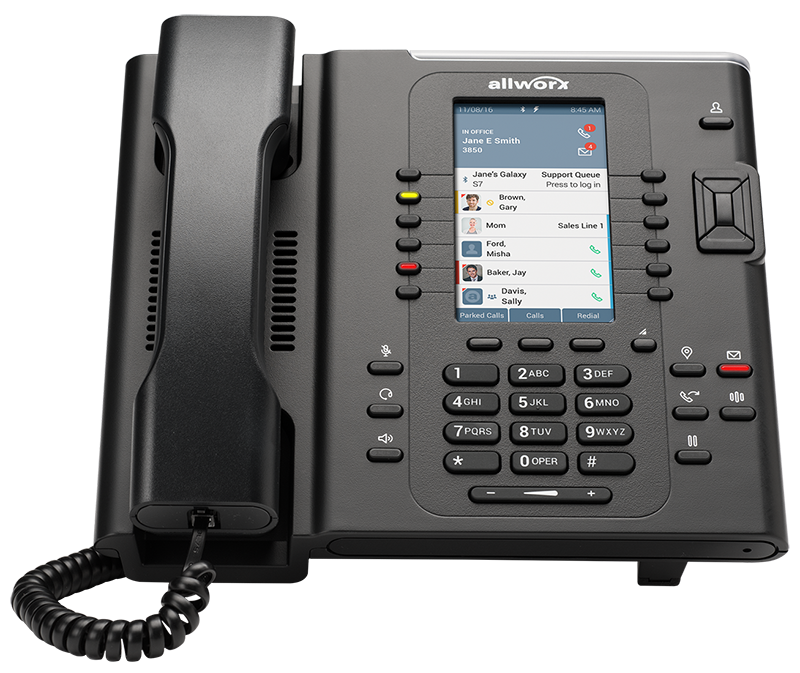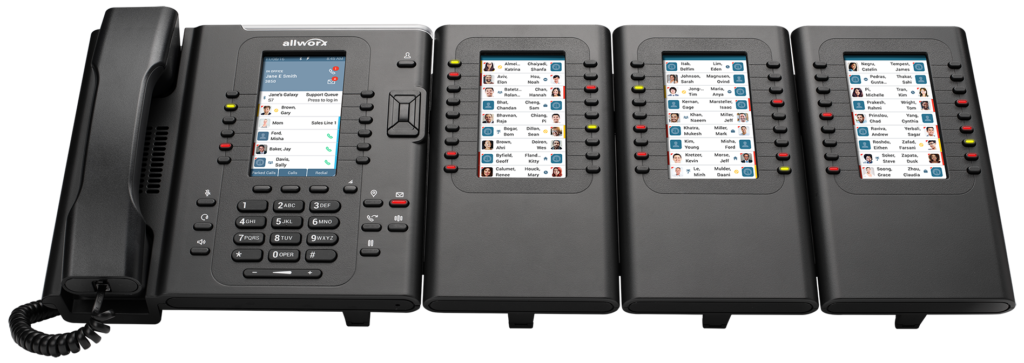By Mary Grlic
Voice over internet protocol (VoIP) phone systems are a must have for any business. They offer so many features that allow companies to improve their productivity, make calls from anywhere, and stay connected with their customers. VoIP offers a lot of features that standard phone systems don’t have. A calling queue and automatic call distribution are two especially useful features that make VoIP an essential for every business, from manufacturing even to nonprofit organizations.
Quick Reminder: What is VoIP?
VoIP stands for voice over internet protocol. It allows for users to make and receive calls via internet connection rather than wires or landlines. With a high-speed internet service provider (ISP), you will be able to make speedy, well-connected calls using VoIP. Voice over IP is especially a great option for businesses because of the ease of connectivity, cost savings, and amazing features offered. Learn more about some of these more extensive VoIP features here.
Your VoIP Key Features for your Small Business
In this article, we’ll take a look at what we think are two of the most useful features that VoIP offers for all businesses: call queuing and ACD (automatic call distribution). They both can benefit your business by helping with productivity and efficiency, ensuring there are no missed calls, boosting promotions, and so much more. Let’s take a look into our two favorite VoIP features for small/medium sized businesses.

The “Queue”
VoIP phone systems have a queue that will maximize business efficiency and ensure that no callers are left behind. The “queue” places incoming calls in an answering line while your team is busy with other calls. Callers won’t be sent to voicemail and their calls won’t be disregarded; rather, they will hear hold music while they wait for the next available representative. Having a call queue is useful for any business no matter the size or type. Financial companies, healthcare centers, non-profit organizations, and even salons or car dealerships can all benefit from having a call queue to maximize business. How? Let’s take a look at some of the benefits of having a call queue for your company.
VoIP Queue = No Missed Calls
During busy times, your small business might receive an influx of calls. Without a call queue, these calls will go unanswered if all employees are busy taking other calls. If the customer doesn’t leave a message or doesn’t answer if you call them back, that means you might have just lost a customer. Unfortunately, this is not an uncommon occurrence, which is why having a queue is a great way to address this problem.
More Calls, More Business
For small businesses, having a VoIP system is great! No missed calls means more business. When customers wait in the queue, they get to hear music and will not be sent to voicemail right away. An agent will answer when available. This means that someone will be able to take every call, which means a higher response ratio and more business. Additionally, the queue makes users more willing to stay on the line and actually get in touch with a representative. If the call goes to voicemail, they might not leave a message, or forget to call back entirely.
Boost your Small Business Promotions with VoIP
Rather than users being on hold while they wait for a response, the queue allows your company to play music or even something more interactive. You can include a voiceover, for example, to inform callers about promotions your business is offering. You can also tell them about your services and give them any necessary contact information, like your website, to help them make an informed decision. This can easily boost sales, as well as keep users on-call since they are listening to something while they wait.

Automatic Call Distribution (ACD)
Automatic call distribution is another incredible feature that your VoIP phone system offers for small businesses. ACD will automatically distribute calls to different employees within your organization based on which type of style you choose. AllWorx, for example, offers four different call distribution styles: linear priority, round-robin, longest idle, and ring all.
Linear priority will distribute calls based on a prioritized list of agents. Perhaps this list has the manager first, followed by the assistant manager. Incoming calls will go to the manager. If that individual is busy, the call will go to the next person in line, the assistant manager. Round-robin distributes calls in a circular manner, starting with one person and then going to the next. If that person is busy, they will be skipped over in that round-robin, and the call will go to the next person in the circle. The longest idle style gives the call to the agents who have not taken calls or been on-call for the longest time. Finally, “ring all” distributes the call to all of the agents at once. These types of call distribution may work better or worse for different companies.
Depending on your business needs, you may prefer one method over the other. Luckily, VoIP companies like AllWorx allow you to customize and utilize any of these styles based on your needs.
Benefits of ACD
With an automatic call distribution system, your company can be sure that someone will always answer the phone. It makes for better and more effective communication. Even if a caller doesn’t get in touch with the specific person they’re looking for, with the way calls are distributed through VoIP, they’re also easy to transfer. The “park” button allows employees to put the caller on a brief hold and see if anyone else is available. Additionally, ACD decreases wait time by automatically providing incoming calls to available agents. If all agents are unavailable, the caller is placed in the queue, and will be redirected to the next available agent shortly thereafter.
With VoIP, employees can also be more productive and feel less prone to burn out. Calls are often be time consuming and require a lot of careful, diligent work and attention. Once a call is completed, the ACD system is configured in such a way so that the employee will have some time before their next call. This way, they can finish up anything from the call or case, and continue working productively before having to greet or assist another customer. Additionally, ACD allows for more flexibility, especially in the case of hybrid and remote workplaces. There is less concern that calls will be missed, since they’ve been routed into a system where they’re not meant to be forgotten. Calls simply and automatically go to an available agent who is next in line. It’s also a perfect solution to evenly distribute calls among employees, and to ensure that everyone is assigned a fair amount of work.
The VoIP System you Need for your Small Business: AllWorx
For any company that uses phones (which is probably you), having a good VoIP system is the way to go. These phones offer so many key features, such as a queue and ACD, that’ll allow your business to be far more efficient and productive. Computero specializes in on-site VoIP installations and we can help you set up a managed phone system for your business through AllWorx. AllWorx is a reliable and sophisticated system that can run over regular analog lines and VoIP services. The AllWorx system is a great option for small to mid-sized businesses. It can support 5-10 phones and can have up to 250 users on one server. Even if your employees are working remotely, they can still use Allworx. Computero knows that AllWorx is the perfect solution for small business phone systems. Contact us to learn more.






0 Comments